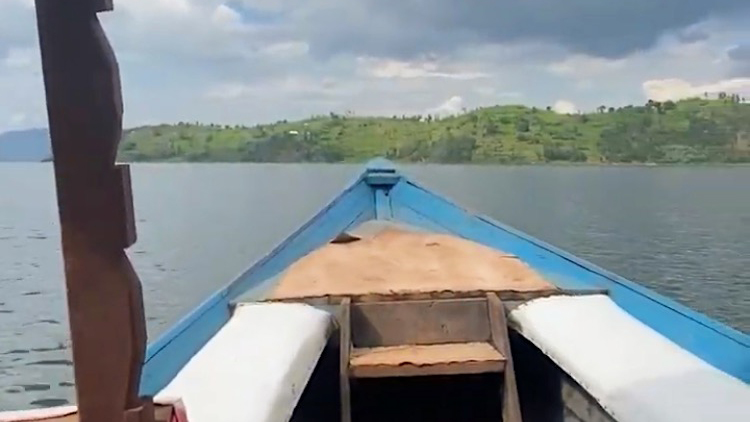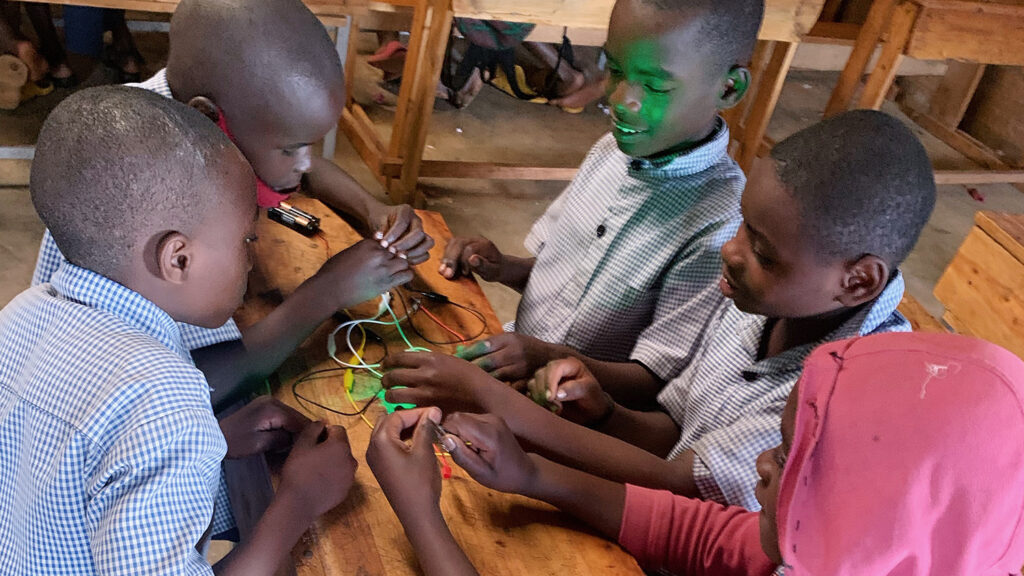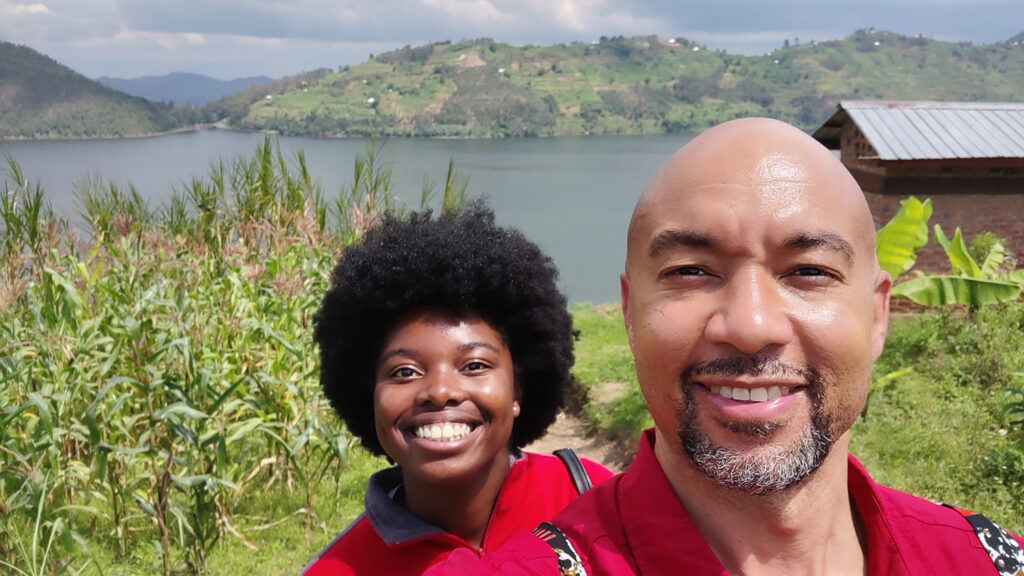Original article by Danielle Herman at COE Communications.
From more than 7,000 miles away, NC State University student Jenni Mangala, a rising senior majoring in electrical engineering, is coordinating the installation of solar panels at a primary school on an island in Rwanda.
Birwa Primary School, located on Lake Burera in Rwanda’s Burera District, is accessible only by boat. The ride across the lake takes about 20-30 minutes, and then there is a 15-30-minute hike up a mountain to the school, which is attended by approximately 60 K-6 students. Because the school is on an island, it does not have access to the area’s power grid, which is already sometimes unreliable.
Mangala worked with the contractor MySol, which is part of the larger company ENGIE Energy Access Rwanda, to calculate the school’s daily electricity needs: about 3,100 watts for lighting and laptop charging. The solar panels are sourced from Rwanda, and each panel is 445 watts. She is now raising $15,000 to pay for the seven panels and installation costs and has about $12,000 to go.
Her goal is to raise the funds this fall, and she will return to Birwa Primary School to help with installation. “As far as getting all the supplies to the school, that’s definitely going to be a physical challenge, since … you basically have to hike to get out there,” she said. “We’ll be hiking with solar power installation supplies, which is going to be interesting and fun and hard.”
Support This Program
Donations can be made to the Engineering Education support fund. This fund, which was set up by Kanton Reynolds through the NC State Engineering Foundation, supports engineering education student projects like the one Jenni Mangala is leading.
“Interesting and fun and hard” has been an underlying theme of the initiative, which has involved intense strategic planning. Mangala has had to coordinate meetings over a six-hour time difference, learn how to set up accounts for fundraising and apply what she’s learned in her electrical engineering classes to real life.
“On a personal level, it’s been really rewarding to see that I could have an impact in the world and directly on people’s lives without having a Ph.D. or some government title or position,” she said. “I’ve realized that anyone honestly can make a difference as long as you have a vision and you’re willing to work toward it.”
A Passion for Renewables
Mangala’s parents and older siblings were born in Congo, where fewer than 20 percent of people have access to electricity. She was born and raised in Raleigh, North Carolina, but her extended family’s experiences in Congo influenced her passion for renewable energy and expanding access to electricity.
“Energy is honestly probably the most interdisciplinary issue that we have as a society because first there’s socioeconomic development of the Global South,” she said. “And then second, climate change, obviously, so mitigating that — renewable energy plays a huge role. And then third is from the business perspective, it’s a burgeoning industry.
That passion for renewable energy — paired with a Park Scholarship and an interest in the university’s study abroad programs — brought her to NC State’s Department of Electrical and Computer Engineering in 2020.
Mangala first went to Kigali, Rwanda, in May 2022 for the Field Experiences in Engineering Education program.
“Since the program focuses on engineering education, I thought it’d be a good way to challenge my engineering knowledge but from a global perspective,” she said.
Kanton Reynolds, a faculty lead for the program and director of undergraduate programs for the Edward P. Fitts Department of Industrial and Systems Engineering, encouraged Mangala to consider the study abroad trip. Reynolds and colleagues in the engineering education program at NC State have formed growing relationships with colleagues at universities and schools in Rwanda.
Through the study abroad program, professors and students from NC State and Rwandan universities are working together to expand their engineering education curriculum, Reynolds explained. Currently, NC State students are partnering with students at the Institute of Applied Sciences in the Rwandan city of Musanze who help translate engineering education curriculum from English to the Rwandan national language, Kinyarwanda. Eventually, the program will be run by Rwandan engineering students who are teaching engineering to K-12 students.
Mothering Across Continents, a nonprofit based in Charlotte, North Carolina, connects NC State with all of the primary schools students work with in Rwanda, including Birwa Primary School. As a Park Faculty Scholar, Reynolds knew about Mangala’s interest in renewable energy, as well as her ability to speak French and family ties to a bordering country, so he recommended the project to her.
“I knew that she had the wherewithal to put together a cohesive project that will make a difference in that region,” he said.
Mangala began working on the project in 2022 and has been in contact with the teachers and headmaster for more than a year. She visited the school for the first time in May 2022 with Reynolds while studying abroad, and she returned in March 2023 as a part of the NC State Student Leadership & Engagement Alternative Service Break Program.
This is the first undergraduate-led project of its kind in the College of Engineering.
How to Help
Mangala balanced an internship in Atlanta this summer while continuing to work on the project and collect donations for the solar panels.
“If anyone has either fundraising expertise or people they know in the energy space, or who are energy nerds kind of like me, or [who can share] the project with their network, [all of that] would be the most helpful,” Mangala said. “It’s really just a matter of getting the word out and seeing who would be interested to get involved.”
Donations can be made at go.ncsu.edu/give-engeducation to the Engineering Education support fund. This fund, which was set up by Reynolds through the NC State Engineering Foundation, supports engineering education student projects like the one Mangala is leading. The fund also supports the new Engineering Education Program led collaboratively by NC State’s College of Engineering and College of Education.




